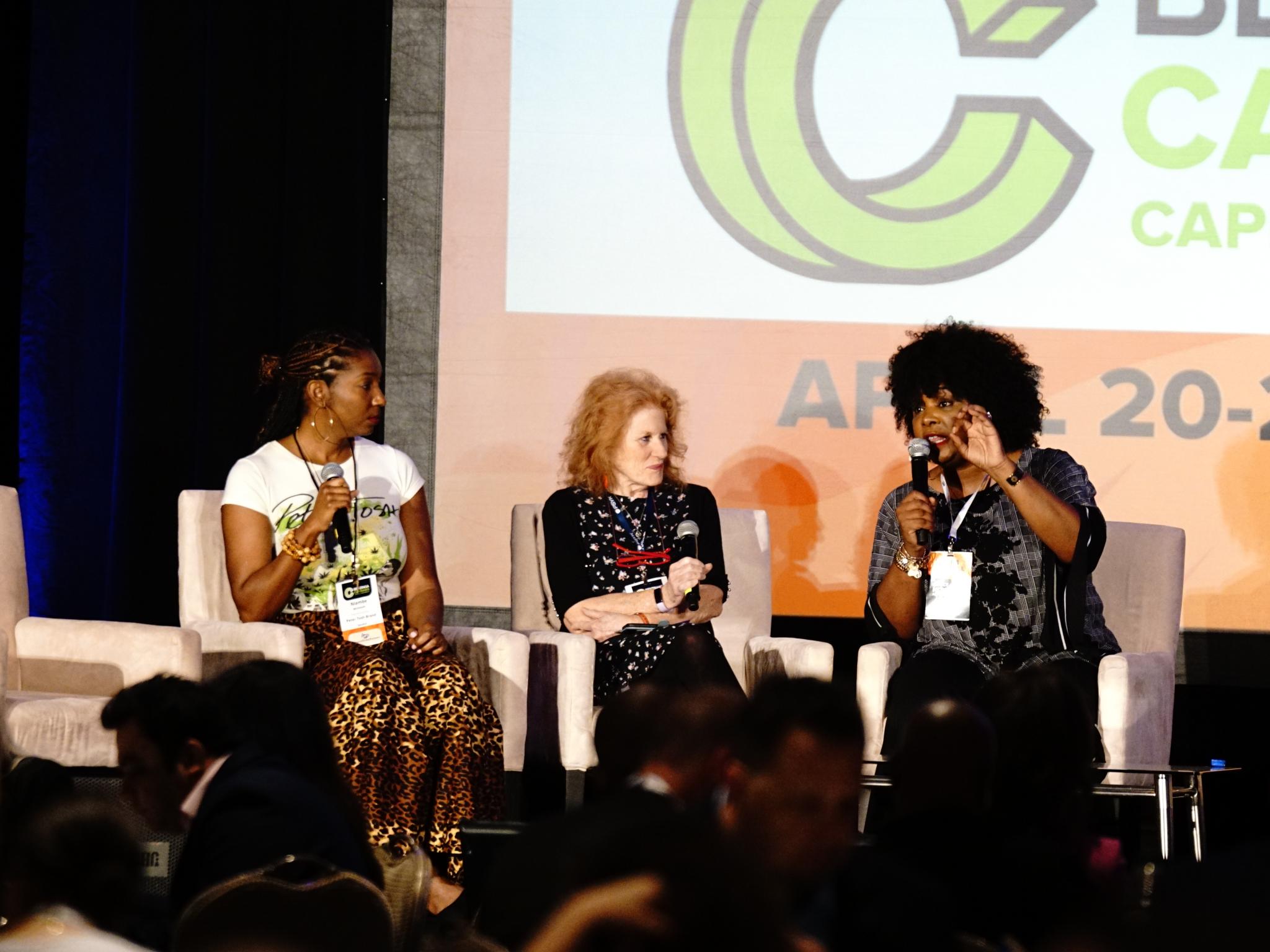
The cannabis industry was built on the backs of people who have been disproportionately impacted by the war on drugs, people and communities of color, said Roz McCarthy, founder and CEO of Minorities for Medical Marijuana, during a panel discussion at the Benzinga Cannabis Capital Conference on 4/20.
The panel, moderated by Benzinga Cannabis editor Maureen Meehan, focused on the importance of advocacy and social impact initiatives for marijuana brands.
The second speaker to share her perspective was Niambe McIntosh, executive director of Peter Tosh Brand & Legacy.
McCarthy: Brands Should Connect To Communities
The cannabis industry has several entry points, McCarthy said, and hers was advocacy. And soon, “advocacy turned into a business, and it’s OK to want to do business in cannabis and to make money in cannabis. Diversity is profitable."
When McCarthy first started, she said she had little knowledge about the industry except that she wanted to make sure communities of color were not left out.
After an unfortunate car accident in which she suffered a traumatic brain injury, she discovered the healing power of marijuana.
“What happened was that, through that dark period I went through, the light on the other side was this brand, my brand Black Buddha cannabis. It's an environmentally conscious brand with a social impact-driven mission. And its vision is for women and by women. It's about being better.”
McCarthy said the most important focus for brands should be the connection to the communities that have been impacted, to women and to people who have been marginalized.
"In the end, they're your customers."
Peter Tosh's Cannabis Legacy
McIntosh, Peter Tosh's youngest daughter, concurred that partnerships in the cannabis space are essential and said there are many organizations on the front lines.
“They are supporting the brands that have already dealt with the impact of cannabis prohibition. And so, as we work to create diversity in the cannabis space, it's a lot easier when we see larger MSOs partnering with nonprofit organizations,” McIntosh said.
McIntosh introduced the Peter Tosh brand, explaining that she took over her father’s legacy in 2010. She reminded the conference audience of his song "Legalize It," which was once the anthem of the legalization movement.
Seeing legalization occurring around the world, she launched the Peter Tosh Foundation. By partnering with different organizations like The Last Prisoner Project and Minorities for Medical Marijuana, McIntosh said she made sure the brand “was on the forefront of social justice.”
Inspired by her father’s words "the plant can build a failing economy, it can stop police brutality," McIntosh is using “the vehicle of our nonprofit” to set it apart and make sure they are representing a change in this industry.
Social Equity Is Also About Economics
McCarthy said they “want to make sure that social equity is about economics,” highlighting the importance of knowing where your tax dollars are going and fighting for a change if needed.
She also highlighted the importance of creating a brand that resonates with one's community, beyond those launched by entertainers or famous athletes. She guarantees that rooting one's brand in the community, keeping it accessible and ultimately creating jobs and education around the plant will ensure longevity and sustainability.
In the end, McCarthy reminded us that social equity means repairing the harms of the past and that a huge opportunity exists to be able to serve those people and their families.
Niambe McIntosh, Maureen Meehan and Roz McCarthy in conversation Wednesday at the Benzinga Cannabis Capital Conference. Photo by Dez Smith for Benzinga.







